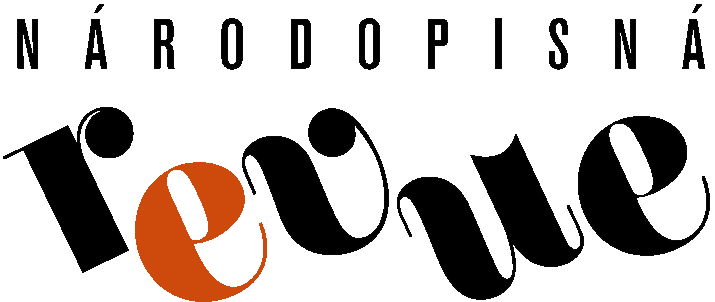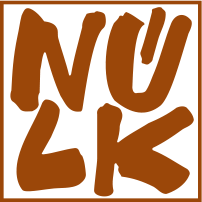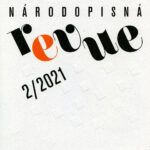Studies on the Subject of “National School in Ethnology and Socio-Cultural Anthropology”
North American Folkloristics between Folkloristics and European Ethnology (Petr Janeček)
An Outline of the Development of the Mexican Anthropology from the Early 19th Century until 1948 (Oldřich Kašpar)
Field Research in Folklore Studies in Serbia: A Historical Overview and Development Perspectives (Sonja Petrović)
Thirty Years of Independent Ukrainian Ethnomusicology (1990–2020) (Iryna Dovhaljuk – Lina Dobrjanska)
Rieger, or Grimm? Romantic and Pragmatic Approaches to the Ethnological Research into Laws (Tomáš Ledvinka)
For all content click the button CONTENTS.
North American Folkloristics between Folklore Studies and European Ethnology
Petr Janeček
The overview study focuses on a brief outline of the history and disciplinary identity of North American folklore studies (folkloristics, folklore) with an emphasis on the field of verbal culture. Major research themes, research schools, and personalities are presented, as well as history of institutionalization of the field at the U.S. universities after World War II. After a brief introduction to the origins, when North American folklore studies did not differ significantly from British and Continental scholarship, its development during interwar period and especially in the 1960s and 1970s, when its emancipation took place, mainly because of unique American emphasis on study of folklore performance, is described. Critical overview text thus presents basic contours of this specific academic field, practiced mainly in the U.S.A and Canada, which in many aspects represents a unique scientific discipline with close ties to international folklore studies, European ethnology, and anthropological fields in general.
An Outline of the Development of the Mexican Anthropology from the early 19th Century until 1948
Oldřich Kašpar
This overview study seeks to capture basic features of the development of the Mexican anthropology from its "formative" beginnings at the very outset of the 19th century until the founding of the National Indigenist Institute in 1948. Emphasis is placed on the historical roots of the latter scientific discipline, the contribution of foreign scholars to the development of the discipline in the 19th and the first half of the 20th centuries, and the variable evolution of a constant in the Mexican ethnographic and anthropological research, namely the pervasive question of indigenism. The description and analysis of the activities of the basic museum and academic institutions, as well as of the first professional periodicals have not been left out either. The work also analyses the impact that various turning points in the Mexican history of the defined period had on the development of the discipline (the Second Mexican Empire in the 19th century, the dictatorship of Porfirio Díaz, the last two decades of the 19th and the first decade of the 20th centuries, the Mexican Revolution of 1910-1917, the later period of 'cardenism', etc.). The author has based his text on the study of archival documents, contemporary Mexican ethnographic and museum literature, and contemporary scholarly works, especially those written by Mexican and American anthropologists.
Field Research in Folklore Studies in Serbia: A Historical Overview and Development Perspectives
Sonja Petrović
The paper offers an overview of the most relevant events in the history of collecting of the Serbian oral tradition, starting with the medieval mentions and records, through the recording of folk songs in the modern times in various regions inhabited by the Serbs, up to the systematic fieldwork collection conducted by Vuk Karadžić and the contemporary field research in folklore studies. The author indicates specific motivations of collectors in different periods, and the position and role of folklore in creating the image about the national past and in forming the national identity of the Serbs. Special attention was paid to the advances of fieldwork methodology which moved from the principles and recommendations of early ethnographers who designed field questionnaires, and later it grew and embraced contemporary interdisciplinary influences on the understanding of the field and the role of researchers. Contemporary forms and trends in the development of field research in folklore studies in Serbia are singled out and their significance for the development of Serbian folkloristics in the whole is emphasized.
Thirty Years of Independent Ukrainian Ethnomusicology (1990–2020)
Iryna Dovhaljuk – Lina Dobrjanska
The article presents an overview of Ukrainian ethnomusicology in 1990–2020. This period is characterized by the comprehensive development of science mostly due to the obtaining of Ukrainian Independence. The study focuses on the main issues in many ethnomusicological directions. First of all, the attention is focused on the activity of the leading modern Ukrainian ethnomusicological scientific and scientific-pedagogical institutions as well as smaller regional centers. The most important directions of activities of these centers such as documentation of musical folklore (ethnographic and archival), ethnomusical pedagogy, conferences, publications etc. are also analyzed. In addition, scientific achievements in such important areas as theoretical and methodological, areal and typological, historical, ethnoorganological, ethnochoreological, source studies, etc. are considered. As a result, the article comprehensively presents the state of Ukrainian ethnomusicology today and outlines prospects for the future.
Rieger, or Grimm? Romantic and Pragmatic Approach to the Ethnological Study of Law
Tomáš Ledvinka
The article undertakes a genealogy of conceptual definitions of the ‘lore of law’ as a subject of study before the formation of both European legal ethnology and the anthropology of law, mainly within the Historical School of Law in the first half of the nineteenth century. By tracing the way in which the subject ‘lore of law’ has been categorised, the article follows the evolution of its definitions from 18th-century antiquarian legal research, Herder´s view on the law´s orality in original biblical sources, to Jacob Grimm´s understanding of ancient legal customs as part of folk poetry. Grimm´s romantic approach is used to illuminate the distinction of other contemporary approaches, especially the fundamentally opposite pragmatic study of contemporary constitution which has been developed by Joseph Anthon Rieger and Joseph Mader. The ‘lore of law’ seem to have acquired a newfound importance in the period after the dissolution of the Holy Roman Empire (1806). Particularly its conceptual definitions such as “customary law” and “folk law” are explored as being moulded by new nationalist and universalist patterns of scholarly thought. To conclude, the article foregrounds the expansion of legal horizons traced in this pre-evolution of the ethnological study of law.



